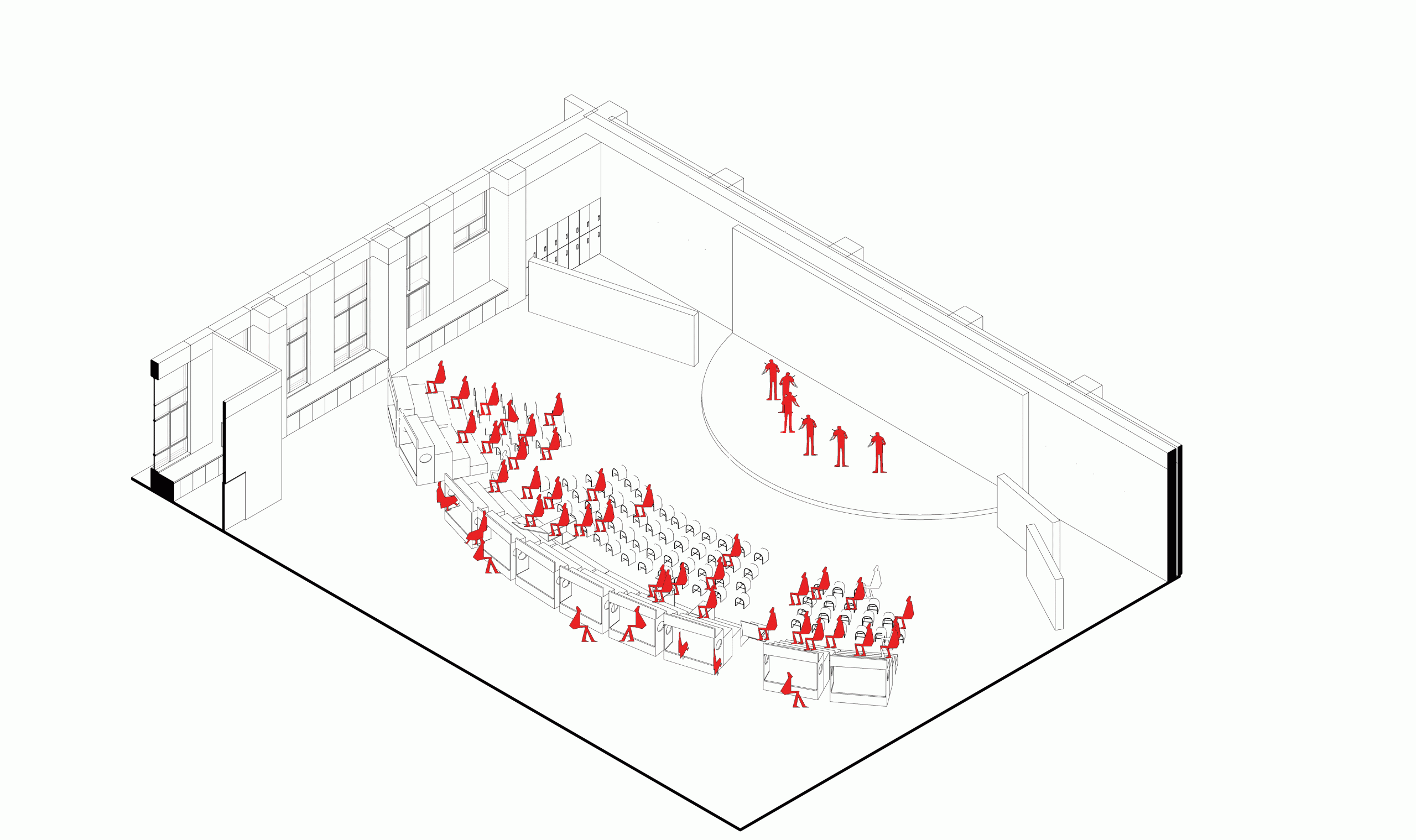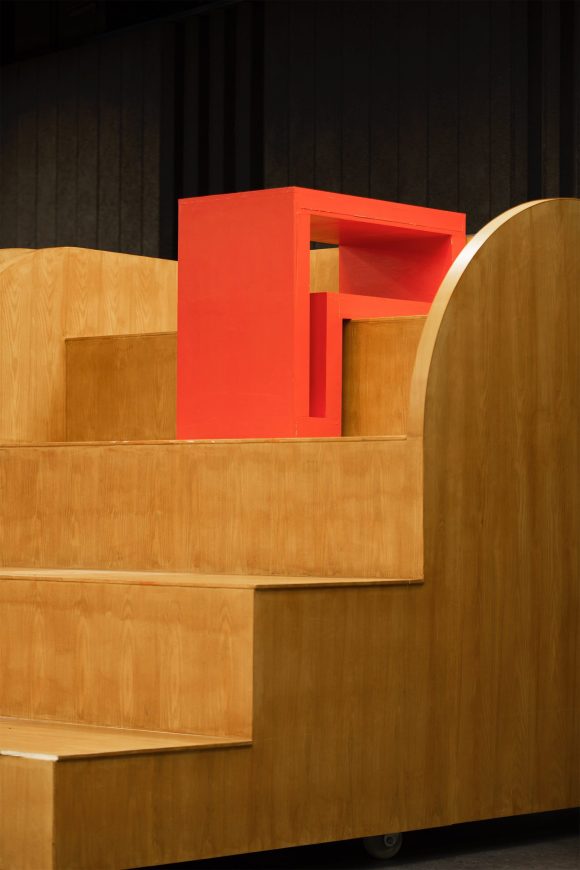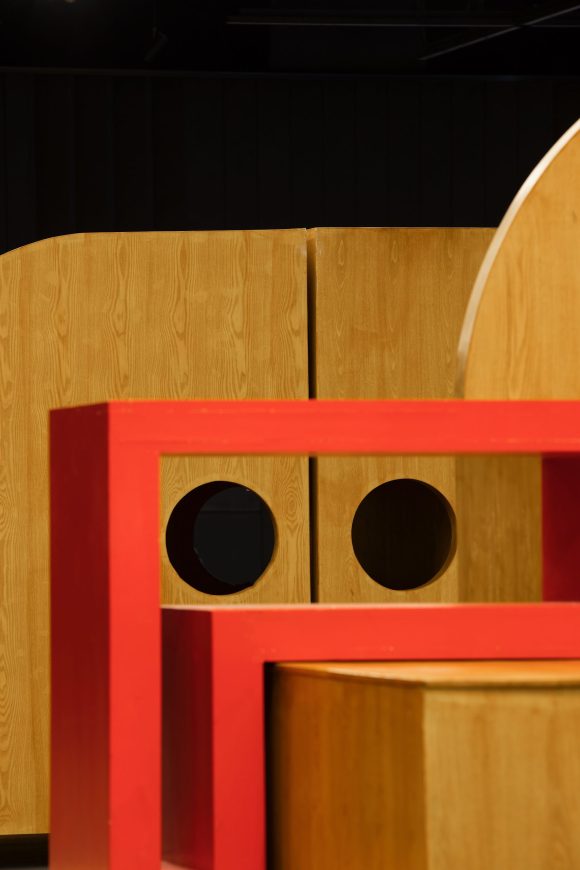本文由 扉建筑 授权mooool发表,欢迎转发,禁止以mooool编辑版本转载。
Thanks FEI Architects for authorizing the publication of the project on mooool. Text description provided by FEI Architects.
扉建筑:北京大学新太阳学生中心,位于学生生活学习功能区的中心地带,毗邻北京大学百周年纪念讲堂和第二教学楼,是一处集学生活动、服务、管理等功能于一身的建筑。随着信息时代的快速发展,功能单一化和设施老化问题让空间无法满足学生们的课余需求,以小剧场为起点,让新太阳学生中心成为校园创意“汇聚点”是本项目的重点。
FEI Architects: Located in the center of the function area for students’ living and studying, and adjacent to the Peking University Hall and No.2 Teaching Building, the New Sun Student Center of Peking University is a building integrate student activities, services, management and other functions. With the rapid development of the Information age, the problems of single function and aging facilities make the space unable to meet the students’ extracurricular needs. Therefore, starting from the small theatre, making the New Sun Student Center a creative convergence point on campus has been the focus of this project.
▽项目视频 Video
▽项目区位 Site

▽新太阳学生活动中心 New Sun Student Center
▽新太阳学生活动中心室内空间改造前 Interior Space before the Renovation
人的行为取决于他们是谁和他们所处的环境 People’s behavior depends on who they are and where they are
“人体内里的细胞属性会潜意识地引导人的行为”,根据这个观点进行延伸,一个空间的活化可以通过注入经过创意研发的单元构件,来开拓空间的功能,进而达到将“闲置空间”甚至是“废墟空间”转化为“幸福空间”的理想状态。
“在有限的预算内,我们坚决不做装饰性的设计,而是创建一个细胞组件,以应对和开发空间功能的多样性。”
——项目设计师黄毅(扉建筑合伙人)
“The attributes of the cells in human body will subconsciously guide human behavior” — from this perspective and extending further, the activation of a space can be achieved by injecting creatively developed unit components to expand the functions of space; as a result, the ideal of transforming an “idle” or even “ruins” space into “happy space” would be reached.
“With a limited budget, we are determined not to do decorative design, but to create a cell component to accommodate and develop the diversity of space functions.”
— Project designer,Erin Huang(Partner of FEI Architects)
▽活动阶梯全景 Activity Ladder Detail

▽组合成半围合型演出空间 Forming a Semi-Enclosed Performance Space

细胞与构件:功能搭建 Cell and Building Block: Building Functions
正如人体细胞是负责创造一切基本功能的构件一样,设计师以“化小-Less is more”的概念开始构思,让每一个组件都能像细胞一样创造更大的可能性。在这个基础下,便使用了基本单元的概念,设计出一个阶梯状组件和三个小型配件。空间还是那个空间,但通过这件大家具设计,让小剧场充满无限可能,这也正是设计的价值所在。
Just as the human cell is the building block responsible for creating all the basic functions, the designer began with the concept of “Less is more”, so that each component can create greater possibilities like the cell. On this basis, the concept of basic unit is used to design a step-like component and three small accessories. The space is still that space, but through this big furniture design, the small theatre is filled with infinite possibilities, which is also the value of design.
▽“细胞”构件设计图 Design Drawing of “Cell” Component

▽活动阶梯基本单元 Movable Steps

▽“细胞”组件 Cell Block

组织与系统:场景构筑 Organization and System: Scene Construction
设计师依据固定的几个单元组合,设计出了多个功能场景来满足社团排练、陈设展览、自习交流、小组讨论、休息休闲、晚会派对等课余需求。易于组合和移动的构件让学生们可以自由发挥再创作,以增加功能的多样性和提升空间的使用率。
不同社团同时排练的时候,它们把空间分为几个区域;红色的小桌子既满足讨论,又是展览的展示台,还是象棋盘;有正式演出时,看台围合成弧形,形成完整的看台,配上临时凳子,可容纳300人观演。让原来的小剧场容纳了更多可能性,由基础生态演变到千姿百态。
Based on the combination of several fixed units, the designer designed a number of functional scenes to meet extra-curricular needs such as club activity rehearsal, display and exhibition, self-study and exchange, group discussion, rest and leisure, party and gathering, etc. The components, which are easy to combine and move, allow students to freely re-create to increase the diversity of functions and enhance the usage rate of space.
When different clubs rehearse at the same time, the space could be divided into several areas; The small red table is not only for discussion, but can also serve as display table or chess board; When there is a formal performance, the stand is surrounded by an arc to form a complete stand; While with temporary stools, it can accommodate 300 people. Thus the original small theatre is able to accommodate more possibilities, evolving from a primary ecosystem to embrace a variety of forms.
▽空间满足不同使用功能的动态分析图 Dayamic Graph of Space Accommodating Various Functions

▽学生们在改造后空间中的各种氛围情境 Students in Various Situations after Renovation of the Space


个体与行为:氛围营造 Individual and Behavior: Ambience Creation
新的空间能激发人的创造性,同时也开发人的思维。当功能和场景得到满足,师生们便成为了这个空间的主角。各种氛围在这个空间里弥漫,师生们实现交流互动和建立社会关系的可能,构件和组合就成为了触发社交的一个关键因素。
The new space can stimulate people’s creativity and at the same time enhance people’s thinking. When needs of functions and scenes are satisfied, teachers and students become the protagonists of this space. All kinds of ambiences permeate in the space and make it possible for teachers and students to communicate and interact as well as build social relations. Thus components and combinations become a key factor in triggering social interaction.
▽“细胞”引导人的行为概念图 Conceptual Map of “Cell” Guiding Human Behaviors

▽活动构件可以成为棋盘 Activity Component Becoming Chessboard

▽活动阶梯背面可以成为阅读区 The Back of Movable Steps Turning into Reading Corner

「创意空间」与「情境构建」成为本次小剧场空间设计的主要线索,并开启了「活化空间」与「美感教学」的先锋,同时也展示了临时空间的潜力。
扉建筑通过对这种易组合、可持续的方式进行另类的探索,希望将“细胞”重新引入到模块化的公共结构中,为城市居民引导更多样化的活动休闲方式。
“Creative Space” and “Situational Construction” have become the main clues of this small theater space design, as well as the pioneer in launching “Activating Space” and “Aesthetic Teaching”, which also demonstrate the potential of temporary space.
By exploring, in an alternative way, such easy-for-combination and sustainable approach, FEI Architects hopes to reintroduce “cell” into the modular public structure and lead in more diversified leisure activities for urban residents.
▽活动阶梯细节 Component Detail


项目名称:北京大学新太阳学生中心小剧场看台装置
建筑事务所:扉建筑
事务所网站:www.feiartecture.com
联络邮箱:feiyue@feiartecture.com
公司所在地:中国广东省广州市海珠区怡安路财京商务公馆
建筑面积:680平方米
项目地址:北京市海淀区燕园街道颐和园路5号
主创建筑师:黄毅
摄影师:野猫
设计团队:卓锦万
委托方:北京大学
Project Name: Stand Installation of New Sun Student Center of Peking University
Architecture Firm: FEI Architects
Website: www.feiartecture.com
Contact e-mail: feiyue@feiartecture.com
Firm Location: Caijing business mansion, Yi’an Road, Haizhu District, Guangzhou, Guangdong, China
Gross Built Area:680 m²
Project location: Peking University,No.5 Yiheyuan Road Haidian District,Beijing
Lead Architects: Erin Huang
Media Provider
Photo credits: yemao
Additional Credits
Design Team:Zhuo Jinwan
Clients: Peking University
“ 一个将“闲置空间”甚至是“废墟空间”转化为“幸福空间”的公共装置。”
审稿编辑: Maggie
更多read more about: 扉建筑 FEI Architects








0 Comments